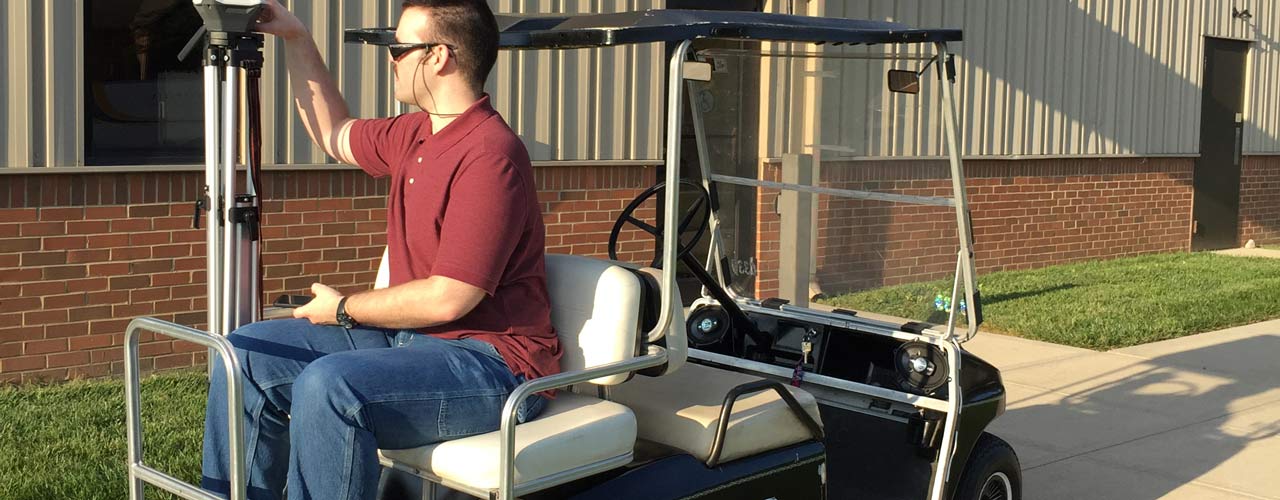by Hannah Fair, Student Public Relations Writer
Golfers often work on their drive. But a group of Cedarville University computer engineering students is taking that focus to a whole new level.
Three Cedarville computer engineering students — Nathan Jessurun (Charles Town, West Virginia), Ryan Gordon (Beavercreek, Ohio) and Michael Hayes (Redmond, Washington) — teamed up with Alex Cline (Cedarville, Ohio), an electrical engineering student, to design and build an autonomous golf cart. The students test drove the golf cart during spring semester.
— Michael Hayes
“We want our students to take part in the innovative ventures going on in the engineering world today,” said Danielle Fredette, Ph.D., assistant professor of electrical engineering and faculty advisor to the project. “Big projects like this are a good fit for our students’ capabilities.”
A golf cart is a cost-effective vehicle to use to test and develop autonomous driving technology. The project will cost approximately $3,500, $2,000 to purchase a used golf cart cost and $1,500 for the software and hardware to make the cart driverless. Clint Kohl, Ph.D., professor of computer engineering, and Gerry Brown, Ph.D., associate professor of electrical engineering, have helped students with the design and development of this project.
There are three main problems the engineering students are trying to solve: how to make the golf cart go, stop and steer autonomously.
To resolve these challenges, the Cedarville team added new electrical hardware elements to allow the original car motor and its mechanical steering and braking systems to interface with a control computer. The computer gets data from a GPS unit and a RADAR unit, allowing the car to self localize, sense and navigate through its environment.
The GPS system on the roof guides the golf cart through a reprogrammed set of GPS coordinates. The sensors will signal the cart when it is about to bump into something, so that it steers or brakes. These sensors allow the computer to re-route in the case of an obstacle and keep the cart moving to the next GPS coordinate. The dynamic routing functionality will be more fully implemented by next year’s engineering development team.
The external sensors on the cart function effectively in fog or rain, according to Fredette, and the brake can still be used manually by the passengers in the cart.
“Drawing from skills and knowledge we learned throughout all of our previous years at Cedarville, my classmates and I have been able to design, implement and test a cutting-edge project that mimics rather closely the projects that we will be working on once we graduate and move into the real world,” said Hayes, team leader.
“Most engineering careers require hours of debugging, team meetings, discussions, ordering parts, communicating with others, managing hours and many other critical skills that this project has allowed us to experience in advance.”
Located in southwest Ohio, Cedarville University is an accredited, Christ-centered, Baptist institution with an enrollment of 4,193 undergraduate, graduate and online students in more than 150 areas of study. Founded in 1887, Cedarville is recognized nationally for its authentic Christian community, rigorous academic programs, including its bachelor of science in electrical engineering program, strong graduation and retention rates, accredited professional and health science offerings and leading student satisfaction ratings. For more information about the University, visit www.cedarville.edu.


















